WEFE Nexus Leadership Program – Community of Practice Experience Sharing Event

WEFE Nexus Leadership Program – Community of Practice Experience Sharing Event
Towards the integrated management of Water, Energy, Food, and Ecosystems (WEFE): A sensitization course for policy-/decision makers

Sustainable and integrated management of water, energy, food, and ecosystems requires a coordinated and cross-sectoral approach to manage trade-offs and maximize synergies among these deeply interconnected resources. This line of action is called the water-energy-food-ecosystem (WEFE) nexus approach. This 4-hour sensitization course is designed for policymakers and other high-level decisionmakers in any WEFE or WEFE-adjacent sector. It provides an overview of WEFE nexus concepts, issues, and approaches to foster integrated, equitable, and sustainable resource management at multiple scales. The course was co-developed under the umbrella of the CGIAR Initiative on NEXUS Gains by the Center for Water Resources Studies (CWRS), Institute of Engineering, Tribhuvan University, in partnership with the Alliance of Bioversity international and CIAT, and the International Water Management Institute (IWMI). It includes theory as well as practical applications and interactive elements.
Learnings from Inclusive Digital Transformation Workshop
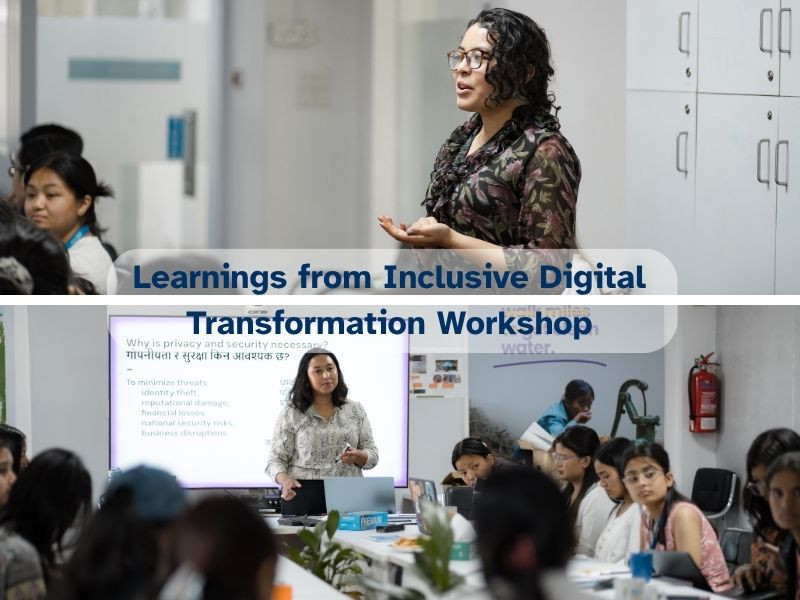
Girls in ICT Day has become a significant celebration whose goal is not just to inspire girls and women to work in STEM but also build the community that is receptive and supportive to the ideas, possible with the medium of collaborations and partnerships. This year the theme was ‘Girls in ICT for inclusive digital transformation’, a truly meaningful and crucially necessary theme that focused on the ongoing movement for gender-inclusive digital development.
To celebrate this day in Nepal, many young girls centric digital awareness programs, skill-building activities as well as several hackathons and ideathons were held. One of them was a dynamic and empowering workshop on Inclusive Digital Transformation, organized by Plan International Nepal, in collaboration with Women Leaders in Technology (WLiT) on 23rd April, 2025 at Plan International Nepal Office, Bakhundol.
Reflections on multi-actor, transdisciplinary leadership training on the water, energy, food, and ecosystems nexus approach for women in Nepal

Reflections on multi-actor, transdisciplinary leadership training on the water, energy, food, and ecosystems nexus approach for women in Nepal. Colombo, Sri Lanka: International Water Management Institute (IWMI). CGIAR Initiative on NEXUS Gains. 13p.
Is Nepal on a Path Towards Gender Inclusive Political Leadership? An Analysis of the 2022 Local Level Elections
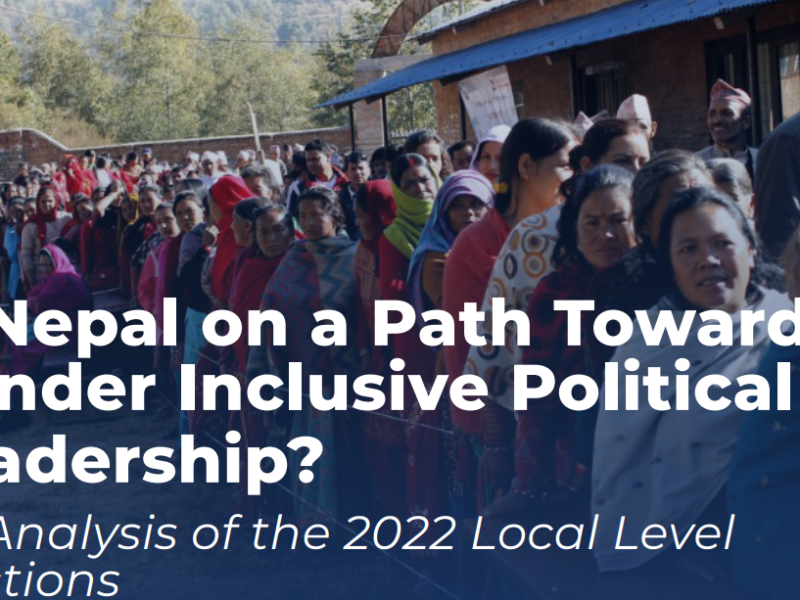
Female Representation and Candidacy Remains at a Low Level in 2022: Female candidacy and
representation remains below or at 5% in mayor, ward chair and open ward positions in 2022. Female candidacy and representation for deputy mayor positions has dropped to roughly 75%.
Cultivating Innovation: Nurturing Youth-Government Collaboration for Evidence-Based Policy Decisions
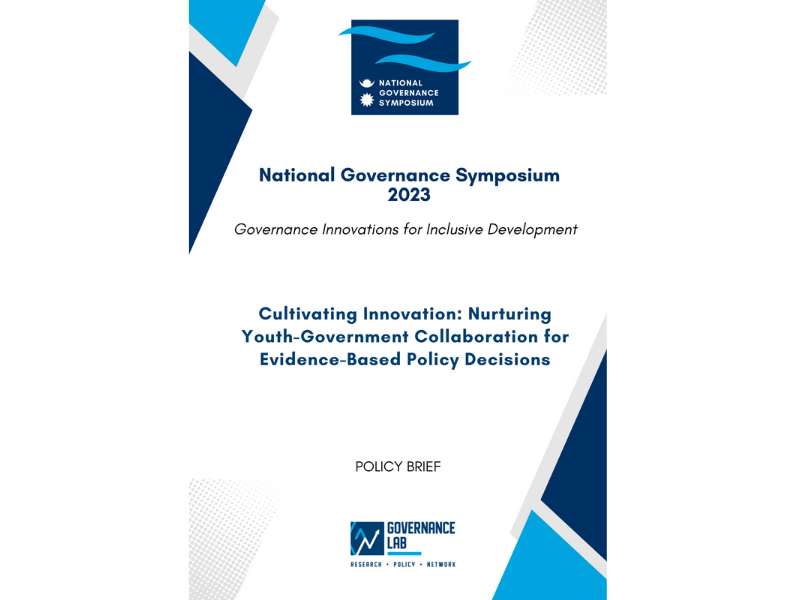
Nepal has adopted a federal system of governance since 2015, which aims to enhance people’s participation, democracy, and responsiveness in the government. Nepal's current system of governance is a federal republic with a parliamentary system of government. The Constitution of Nepal of 2015, establishes the framework for the governance system, which consists of three tiers: federal, provincial, and local. The federal government has executive, legislative, and judicial branches, while the provincial and local governments have legislative and executive branches.
Inclusive Climate Governance: Challenges and the Way Forward
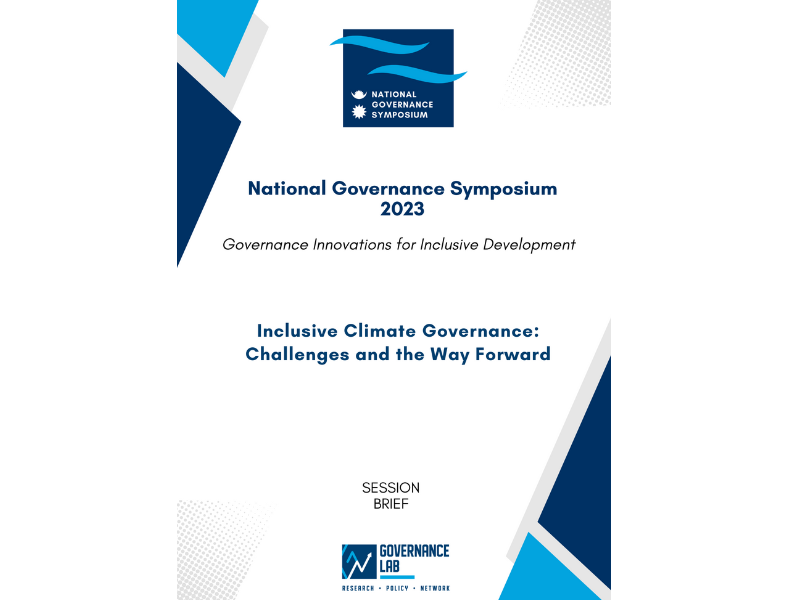
Climate change is a global crisis with far-reaching impacts, disproportionately affecting vulnerable
populations. In Nepal, susceptibility to climate change is compounded by disparities in climate
governance, risking a 7% GDP reduction by 2050. Non-inclusive practices perpetuate existing inequalities and impede effective policy implementation. Inclusive climate governance is paramount for addressing global climate change.
Breaking Barriers: Moving Beyond Representation to Dignity and Selfdetermination
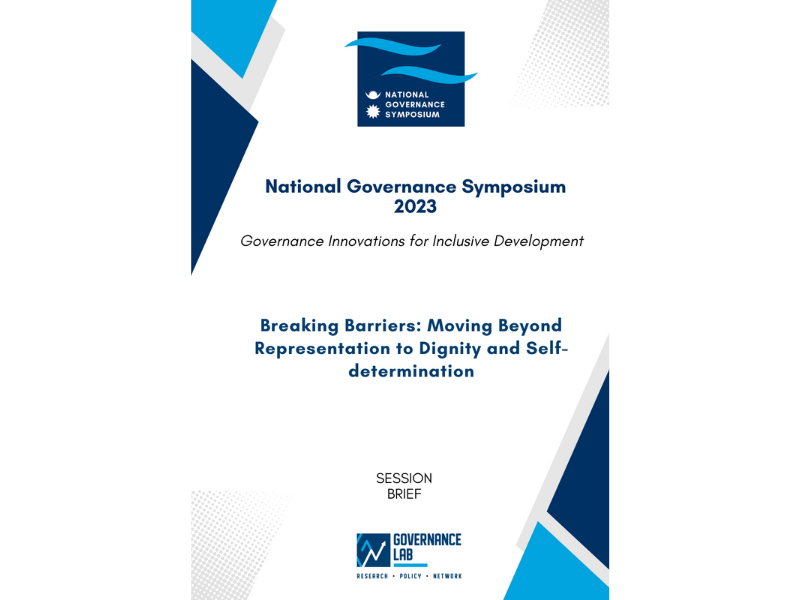
The Constitution of Nepal 2015 shows a commitment towards inclusive and participatory principles as
well as the aspiration for the establishment of an equitable society that includes all minority
communities, including those with disabilities. Its core aspect calls for the ‘ending discriminations
relating to class, caste, region, language, religion and gender”, while ensuring the rights of women
and historically excluded groups.
Making a Case for National Women Enterprise Development Strategy (NWEDS)
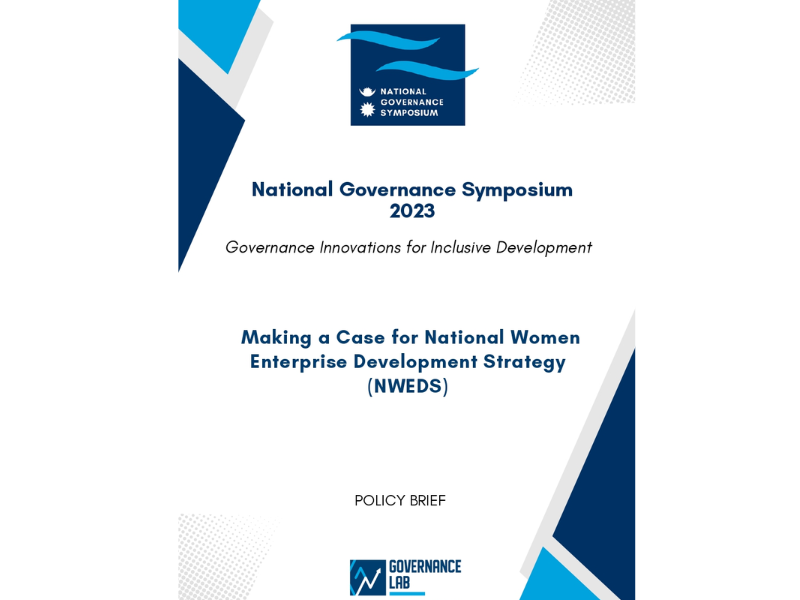
The composition of Nepal's population, with women comprising 51% according to the 2021 Census, presents their significant role in the country's economic landscape. Women entrepreneurship plays a crucial role in Nepal's development by uplifting women’s status within society and contributing to economic growth. However, ensuring equal opportunity and enabling equitable access for women entrepreneurs is still a far cry in various parts of the world including Nepal.
Enhancing Reintegration Sustainability for Nepali Migrant Workers
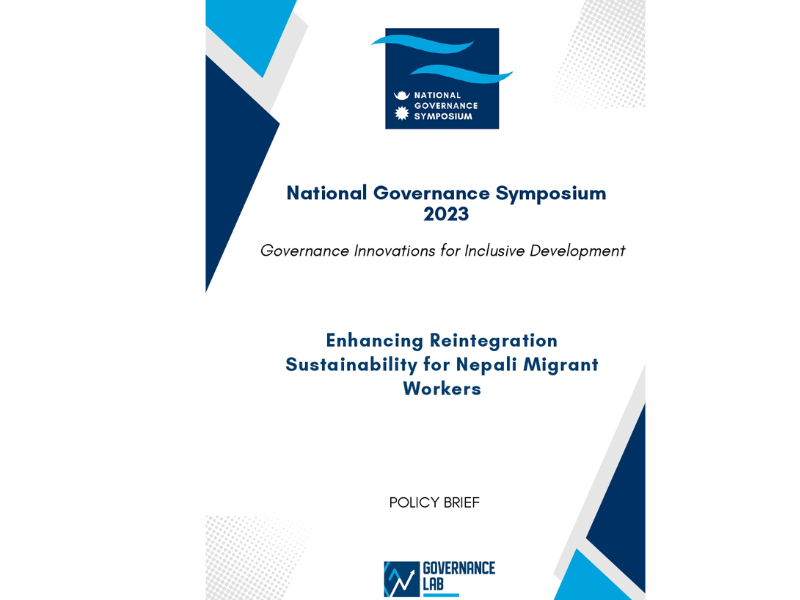
After the pandemic, migrant laborers from Nepal faced significant obstacles that hindered their ability to reintegrate. Their problems were made worse by financial restraints related to remittance-driven loan repayments, a mismatch between domestic industry demands and acquired skills, a lack of knowledge about available support services, and increased psychological distress, especially among vulnerable groups such as women and informal workers.







